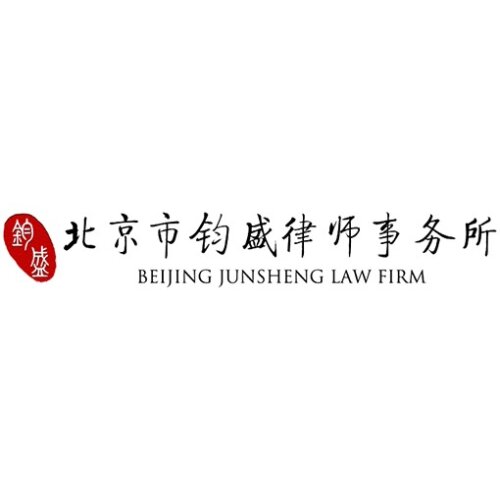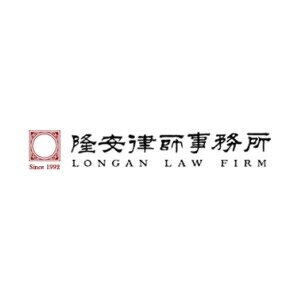Best Labor Law Lawyers in China
Share your needs with us, get contacted by law firms.
Free. Takes 2 min.
Or refine your search by selecting a city:
List of the best lawyers in China
About Labor Law in China
Labor Law in China governs the rights and obligations of workers and employers. The central legislation is the Labor Law of the People’s Republic of China and the Labor Contract Law. These laws cover a wide array of workplace-related issues, including employment contracts, wages, working hours, rest and vacations, workers’ safety and health, social insurance, and the settlement of labor disputes. With the growing complexity of the labor market, China has continually adapted its legal frameworks to ensure fair treatment of workers while supporting business efficiency.
Why You May Need a Lawyer
While navigating labor law issues can often be straightforward, there are several scenarios where legal help might be necessary:
- Unfair Dismissals: If you've been terminated without proper cause, a lawyer can help assess your situation and potentially negotiate compensation or reinstatement.
- Contract Disagreements: Misinterpretations of employment contracts can lead to disputes which may require legal intervention.
- Wage Disputes: Failure from an employer to pay wages, overtime, or bonuses according to the contract or law might necessitate legal action.
- Workplace Discrimination or Harassment: If you face discrimination based on gender, age, race, or other attributes, you may need legal advice to handle grievances or file a complaint.
- Social Insurance Issues: Problems related to the failure of contribution to social insurance by employers can be complex and benefit from legal scrutiny.
Local Laws Overview
Understanding key aspects of local labor laws can help both employees and employers adhere to legal requirements effectively:
- Employment Contracts: It is mandatory for all employees to have a written contract. The law requires specifics about job duties, remuneration, and termination procedures.
- Working Hours: The standard workweek is 40 hours, with any additional hours requiring overtime compensation.
- Wages: Wages must be paid on time as stipulated in the employment contract and must comply with local minimum wage laws.
- Holidays and Leave: Employees are entitled to paid annual leave and public holidays. Maternity and parental leaves are also part of statutory requirements.
- Labor Dispute Resolution: Disputes are to be managed through negotiation, arbitration, or litigation. Labor dispute arbitration is a mandatory first step before litigation.
Frequently Asked Questions
1. What is the minimum wage in China?
Minimum wage levels vary by region and are regularly updated. Local governments set their respective minimum wages according to local economic conditions.
2. Are employment contracts mandatory?
Yes, employment contracts are compulsory, and employers must provide a written contract within one month of employment commencement.
3. What should be included in an employment contract?
An employment contract should include job description, salary, working hours, work location, duration of the contract, any probation terms, and other essential employment conditions.
4. What are the standard working hours?
The statutory standard working hours are 8 hours per day and 40 hours per week. Overtime must be compensated proportionally.
5. What is the regulation for overtime work?
Overtime work must be compensated at 150% of standard wages on weekdays, 200% on rest days (if a day off is not granted), and 300% on statutory holidays.
6. How are disputes commonly resolved?
Disputes are usually resolved via negotiation, through mediation, or by proceeding to arbitration and litigation if necessary.
7. Are non-compete clauses enforceable?
Yes, they are enforceable, but must be reasonable in scope, duration, and territory. Compensation for the non-compete period is required.
8. What constitutes wrongful termination?
Termination without legally specified causes or inadequate procedures in line with the Labor Contract Law is often deemed wrongful.
9. How does maternity leave work?
Female employees are entitled to at least 98 days of maternity leave, with an extension for certain circumstances, which is paid according to law.
10. Are collective agreements common?
Yes, collective agreements negotiated between employee representatives and employers cover aspects like wages, working hours, and general working conditions.
Additional Resources
Here are some useful resources for further information or assistance in labor law matters:
- Ministry of Human Resources and Social Security: The governmental body responsible for labor laws enforcement and updates.
- Local Labor Bureaus: These are often the first point of contact for labor-related inquiries or complaints.
- Legal Aid Centers: Many cities have centers offering free or subsidized legal advice to employees or employers.
- Trade Unions: Workers can seek assistance or representation through local trade unions.
Next Steps
If you require legal assistance in labor law, consider taking the following steps:
- Identify the Issue: Clearly define the labor issue and gather all relevant documents like contracts, letters, or official communications.
- Research or Seek Initial Advice: Use available resources to understand your position or visit a legal aid center for preliminary advice.
- Consult a Professional: If the issue is complex, consult a lawyer who specializes in labor law to explore your options and develop a strategy.
- Engage in Dialogue: Where possible, try to resolve disputes through dialogue or negotiation before proceeding to arbitration or litigation.
- Prepare for Legal Action: If necessary, prepare for labor dispute resolution through arbitration or court proceedings with the help of your lawyer.
Lawzana helps you find the best lawyers and law firms in China through a curated and pre-screened list of qualified legal professionals. Our platform offers rankings and detailed profiles of attorneys and law firms, allowing you to compare based on practice areas, including Labor Law, experience, and client feedback.
Each profile includes a description of the firm's areas of practice, client reviews, team members and partners, year of establishment, spoken languages, office locations, contact information, social media presence, and any published articles or resources. Most firms on our platform speak English and are experienced in both local and international legal matters.
Get a quote from top-rated law firms in China — quickly, securely, and without unnecessary hassle.
Disclaimer:
The information provided on this page is for general informational purposes only and does not constitute legal advice. While we strive to ensure the accuracy and relevance of the content, legal information may change over time, and interpretations of the law can vary. You should always consult with a qualified legal professional for advice specific to your situation.
We disclaim all liability for actions taken or not taken based on the content of this page. If you believe any information is incorrect or outdated, please contact us, and we will review and update it where appropriate.
Browse labor law law firms by city in China
Refine your search by selecting a city.















